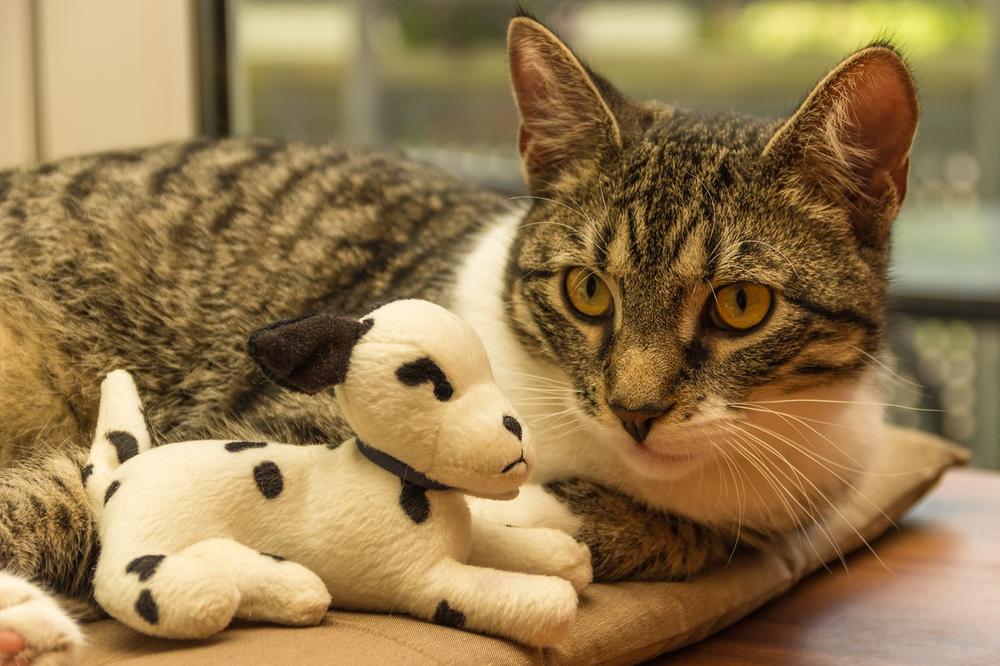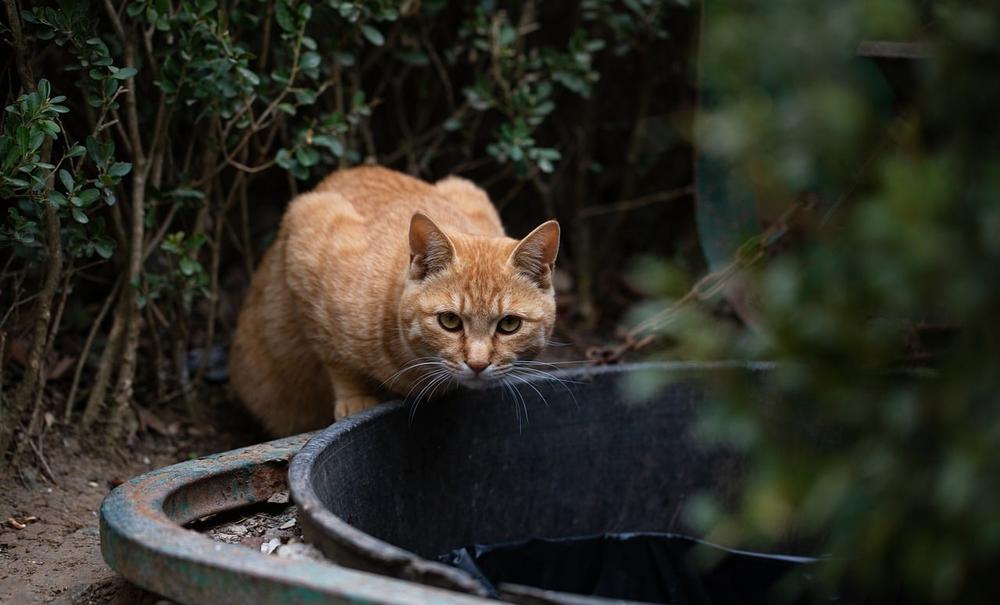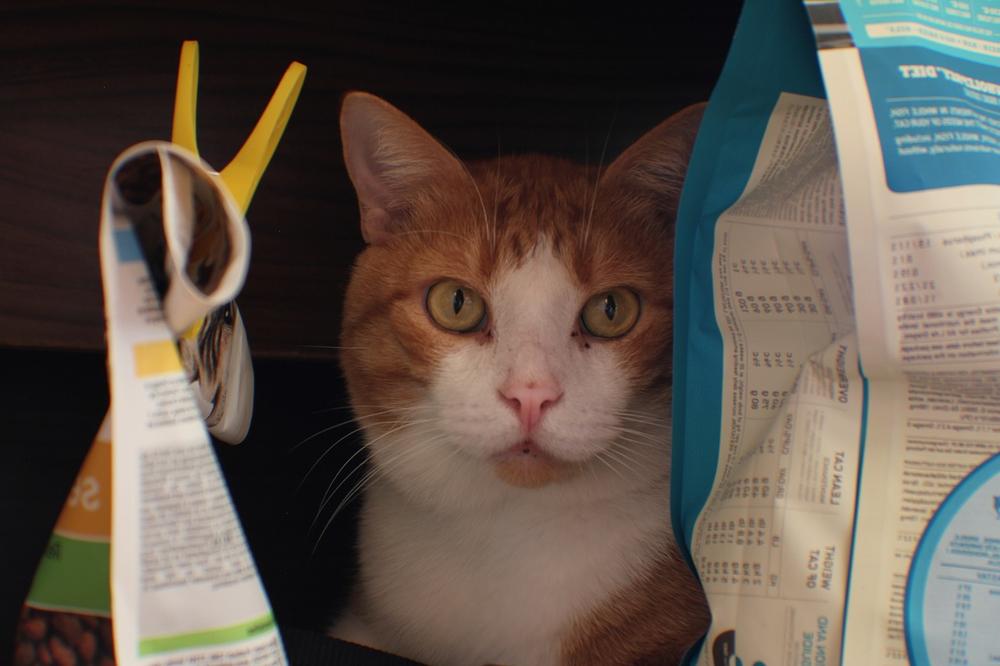Cat Digging in the Litter Box: This Is Why They Do That

You'll agree with me when I say:
Having a cat digging in the litter box can be downright infuriating 😠.
It's like they're on a relentless mission to create chaos and wreak havoc on your clean home.
You just want a peaceful and odor-free sanctuary, but your furry friend has other plans.
It's like they're staging a mutiny against your sanity.
But fear not, my friend.
Let's dive into the mysterious world of cat litter box digging together and uncover the truth.
Shall we?
Cat Excessive Digging in Litter Box
If your cat is digging excessively in the litter box, there may be some underlying issues you need to address.
Here are some tips to help reduce excessive digging:
- Provide mental and physical stimulation through playtime or interactive toys to keep your cat engaged and distract them from digging.
- Monitor your cat's litter box behavior closely for any changes or signs of distress. This can indicate health problems such as gastrointestinal issues or stress.
- Consult with your veterinarian if you notice any persistent behavioral changes or accompanying symptoms like diarrhea or increased time spent in the litter box.
- Evaluate your cat's litter box set up and make sure it is suitable and comfortable for them. Consider using a litter with good paw feel to satisfy their natural instincts.
- Clean the litter box regularly to maintain hygiene and prevent any aversion to using it.
- Provide a quiet and peaceful location for the litter box to minimize disturbances that might influence excess digging.
- Consider using an automatic litter box to alleviate the need for digging and provide a cleaner environment for your cat.
- Prevent litter tracking by placing mats or liners around the litter box area.
- Switch to an uncovered litter box if your cat seems uncomfortable with a covered one.
Understanding and addressing the root causes of excessive digging is crucial to creating a happy and healthy litter box experience for your cat. 😺
Main points I'll expand upon further down this article:
- Male cats straining and digging without passing urine may indicate a blocked bladder.
- Litter depth should be around two to three inches, but preferences may vary.
- Lack of urination with scratching and digging behaviors could be a medical emergency.
- Meowing while digging suggests discomfort or stress.
- Complete blockage of the urethra is a serious condition for male cats.
- Maintaining cleanliness in the litter box and providing a comfortable environment are important.
- If a cat digs excessively but doesn't produce much urine, it may indicate medical issues.
- Repeated visits to the litter box without urinating should be seen as an emergency.
- Changes in litter box routine may uncover underlying medical problems.
- Clay-based litter is commonly used, but scented litter should be avoided.
But what if your cat's digging in the litter box is more than just a behavioral quirk?

What if it could be a sign of a serious health issue?
In this next section, I'll delve deeper into the potential causes and red flags to look out for.
Trust me, you don't want to miss this vital information that could save your cat's life!
Cat Digging in Litterbox Not Peeing
If your cat is digging in the litterbox but not peeing, it could indicate a blocked bladder or a more serious health issue. Pay attention to their behavior, ensure the litter depth is suitable, maintain cleanliness, and consider unscented litter. If the problem persists, seek immediate veterinary attention.
Do you ever wonder why the heck your cat keeps digging in the litter box but doesn't actually pee?
I totally get that it can be a little concerning, but before you start freaking out, let's take a deep breath.
The truth is, there could be a few different reasons for this behavior, so let's break it down.
First things first, scolding or punishing your cat for not using the litter box isn't going to do any good.
In fact, it will just stress them out even more and make the situation worse.
So instead of getting angry at Fluffy, try to pay attention to their behavior patterns.
If you happen to notice your male cat straining and digging frantically, it might be a sign that they have a blocked bladder. 😿
And let me tell ya, that's serious stuff. Your furry friend needs immediate veterinary attention, like right now.
Now, here's an important point to keep in mind:
The depth of the litter matters too. You want to aim for about two to three inches of litter in the box. However, every cat has their own unique preferences because, well, cats are independent creatures. So pay close attention to what makes your cat happy.
If you see your cat scratching and going crazy in the litter box but no actual peeing is happening, it might be time to pick up the phone and call the vet. This becomes especially urgent if your cat meows while they're digging - that's a definite sign of discomfort or stress.
Now, let me emphasize this loud and clear:
Cleanliness matters.
Your cat sees their litter box as a safe haven, so you should always keep it clean.
Create a comfortable environment for them to do their business in.
If despite all that digging, your cat still isn't peeing much, it could mean something more serious is going on.

It could be inflammation, bladder stones, infection, or even stress.
That's when it's time to schedule that vet visit and get some answers.
And here's one more crucial point:
If your cat keeps visiting the litter box without producing any urine, that my friend is an emergency.
Don't waste a single second, rush your cat to the vet pronto!
Last but not least, let's talk about litter choices.
Many people opt for clay-based litter because it's affordable and clumps up nicely.
However, I must warn you against scented litter.
It may seem like a great idea to make things smell better, but trust me, it can actually irritate your cat's sensitive nose. So stick with unscented options.
Alrighty, folks, that's all for now.
Be sure to stay tuned for more cat-astrophic advice on all your feline-related issues.
You don't want to miss out!
But what if your cat is digging in the litter box but not peeing?
Don't worry, there could be a simple explanation for this behavior!
In the next section, I'll delve into some possible reasons behind your cat's digging habits and offer advice on how to address them.
From adjusting the type of litter to understanding their natural instincts, we'll cover it all.
So keep reading to uncover the secrets behind your kitty's intriguing habits!
They Are Burying Their Urine or Feces
When cats bury their urine or feces, it's just their natural behavior.

Here are a few things you should know about it:
- Cats can be picky about litter texture, so try different types to find what they like.
- Stick to unscented or natural litters to avoid irritating their sensitive noses.
- Keeping the litter box clean is crucial. Scoop it every day and change the litter completely once a week.
- If you have more than one cat, make sure there are enough litter boxes. The general rule is one per cat, plus an extra.
- Find quiet spots with easy access for the litter boxes. Noisy areas with lots of traffic aren't ideal.
- Make sure the litter box is big enough for your cat to move and dig comfortably. Some cats may not like enclosed boxes.
Understanding why cats bury their waste helps promote good habits and keeps your home clean.
And now, let's dive deeper into some practical tips to ensure your cat's litter box is suited to their needs and preferences.
Here are a few recommendations I have for creating an ideal environment for your feline friend!
There Isn’t Enough Litter in the Litter Box
Increase the litter depth for effective waste burial
When it comes to your cat's litter box, make sure you give them plenty of litter. Aim for at least two to three inches deep.
This will give them enough material to bury their waste properly and keep everything clean.
Extra litter trays for multi-cat households
If you have more than one cat, you need to think about their territory.
To avoid any conflicts or arguments over the litter box, ensure you have multiple trays. A good rule is to have one litter box per cat.
This way, each cat can do their business without any trouble.
Size matters - choose the right litter box
Your cat's litter box should fit their needs.
If your furry friend is scratching excessively, it might be time for a larger litter box. Give them some space to move around comfortably.
A cramped box can cause them to scratch around instead of inside.
They'll be much happier with extra room.

Make sure the litter box is big enough for them to move comfortably, and always have at least two to three inches of litter depth.
This will prevent them from feeling like there's not enough litter, which can lead to excessive scratching and unhappiness.
By the way, go for natural and unscented litter options.
It's better for the environment and safer for your cats.
No one wants artificial smells messing up their litter box experience!
And if you're really struggling with your cat's litter box habits, I have the perfect solution for you.
After writing extensively about cat behavior, I formulated a concise guide for successfully training stray cats to use a litter box.
If you're feeling curious about how to accomplish this important task, I encourage you to check out my article, "How to Train a Stray Cat to Use a Litter Box." It's packed with helpful tips and techniques that will put your mind at ease and ensure a happy and tidy home environment.
So don't hesitate, give it a read and learn the secrets to litter box success! How to Train a Stray Cat to Use a Litter Box.
Cat Digging in Litterbox at Night
Here's how you can stop your cat from digging in their litter box at night:
- Make the space around the litter box cozy and chill.
- Put a soft blanket or comfy mat nearby so they relax instead of scratching.
- Give them toys and posts to scratch, diverting their digging instincts.
- Think about using a covered litter box for neater results.
- Make sure the litter box is easy to get to and comfy for your furball.
- Keep it clean and odor-free - no one likes a stinky toilet.
- Avoid positioning the litter box near noisy appliances that scare your kitty.
- Get a litter box with tall sides to cut down on scattered litter.
- Experiment with different types of litter to find what your cat digs.
- If the excessive digging keeps happening, consult a vet.
Finding the right fix might require some trial and error.
Providing Adequate Territory Markers for Your Cat
Cats have a natural instinct to mark their territory, and it's important for us as cat owners to provide adequate territory markers.
One way we can do this is by providing dedicated scratching posts or vertical territory markers in various locations around the house.
Scratching and digging in the litter box serve as a means of communication and territorial marking for cats. It helps them establish security and assert ownership.
If your cat is excessively digging in the litter box, it could be a sign that they need more territory markers.
Here are some ideas:
- Provide multiple scratching posts throughout your home. This will give your cat different options for scratching and help satisfy their instinctual need to mark territory.
- Place vertical territory markers, such as cat trees or shelves, near windows or other high places. Cats love to climb and observe their surroundings from above, so this can be a great way for them to mark their territory.
- Consider using pheromone sprays or diffusers designed to reduce stress and promote a sense of security. These can help create a calming environment for your cat and reduce the need for excessive digging.
- If you have multiple cats, make sure each cat has their own designated territory marker. Competition for territory can lead to increased scratching, digging, and rolling to leave their scent behind.
Creating sufficient territorial markers for your cat can meet their need to mark territory and establish a content and peaceful atmosphere for you as well as your beloved feline.
Now that you've learned how providing adequate territory markers can help address excessive digging in the litter box, let's explore another intriguing behavior - why pregnant cats exhibit this digging behavior and what it means for their upcoming delivery!
Without further ado, let me reveal the fascinating details...
Pregnant Cat Digging in Litterbox
To prevent a pregnant cat from digging in the litter box, set up a cozy nesting area just for her.
This behavior is normal as she prepares to give birth—her instincts are at work. If you notice this behavior, you ought to talk to a vet. It might mean she's ready to have her kittens.
Seeking professional advice is the best way to ensure both mama cat and her babies stay safe and healthy.
And that wraps up today's article.
If you wish to read more of my useful articles, I recommend you check out some of these: Why Does My Cat Purr and Bite Me, Why Does My Cat Purr When He Sees Me, Why Do Cats Purr and Knead, Is Purring Involuntary in Cats, and Why Is My Cat Hiding in the Closet
Talk soon,
-Sarah Davis